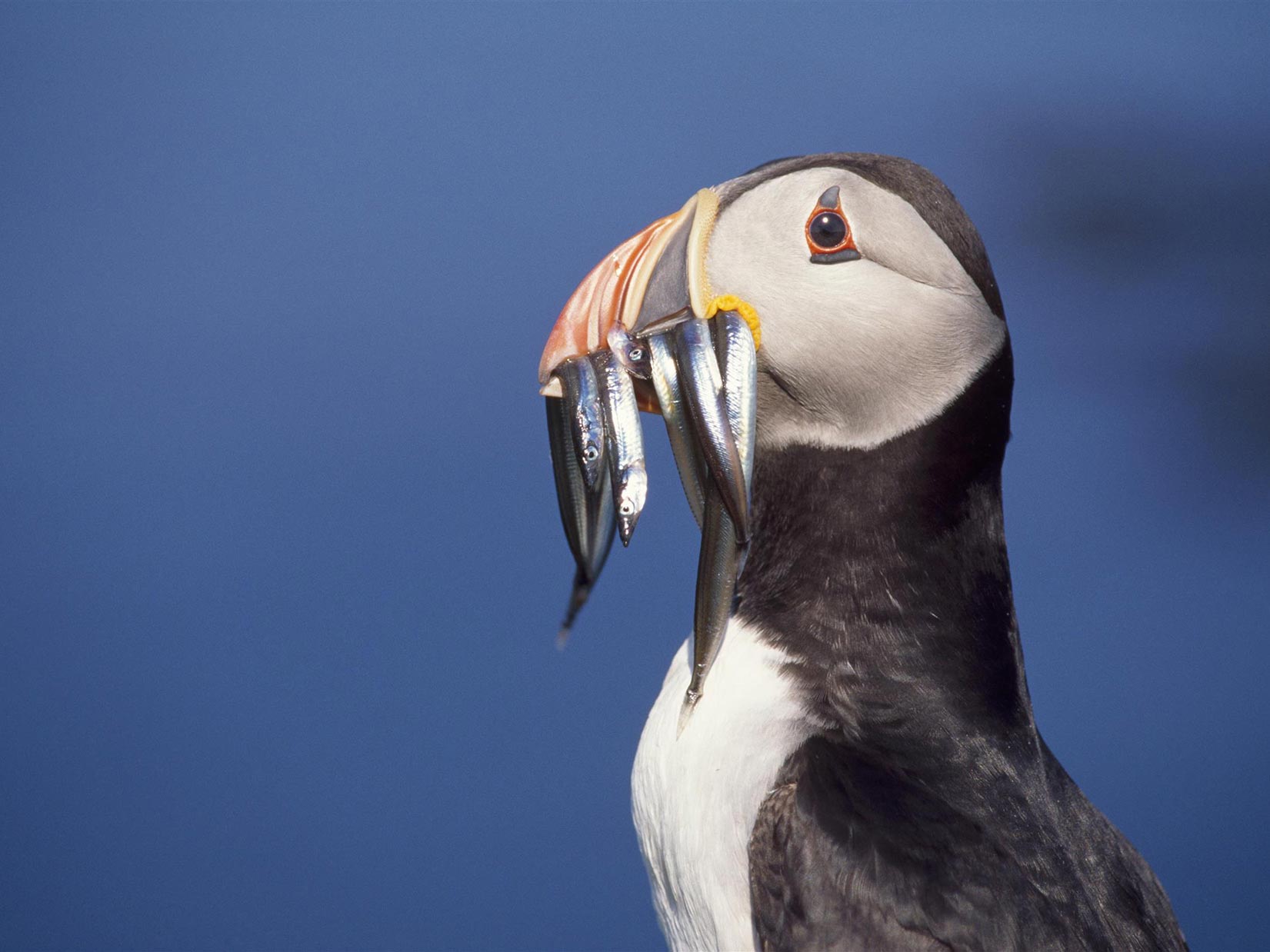British seabirds face an 'uncertain future' as UK waters warm up
Severe summer storms, which are one consequence of climate change, are hitting the breeding colonies of several species

Your support helps us to tell the story
From reproductive rights to climate change to Big Tech, The Independent is on the ground when the story is developing. Whether it's investigating the financials of Elon Musk's pro-Trump PAC or producing our latest documentary, 'The A Word', which shines a light on the American women fighting for reproductive rights, we know how important it is to parse out the facts from the messaging.
At such a critical moment in US history, we need reporters on the ground. Your donation allows us to keep sending journalists to speak to both sides of the story.
The Independent is trusted by Americans across the entire political spectrum. And unlike many other quality news outlets, we choose not to lock Americans out of our reporting and analysis with paywalls. We believe quality journalism should be available to everyone, paid for by those who can afford it.
Your support makes all the difference.Seabirds around Britain’s shores face “an uncertain future” because of climate change with several species expected to become “extremely rare or even extinct” over the next century, according to a major review.
The report, which summarised research carried out by some 400 scientists over the last 10 years, warned puffins, terns, kittiwakes and fulmars were all struggling with the rising temperatures, while severe summer storms were having “strong negative effects” on breeding colonies of several species.
In addition to the rising sea temperatures — from usually below 11C between the 1870s and 1930s to more than 12C in 2014 — the water has also become more acidic and the number of times sea levels have reach extremely high levels has soared.
The health of seabird populations is widely regarded as a key indicator of the health of the marine environment, as they essentially carry out ‘surveys’ of life beneath the waves when they go hunting for food.
And the report, by the UK Marine Climate Change Impacts Partnership (MCCIP), found they were in trouble.
“Seabirds in the UK face an uncertain future because of climate change and its potential interaction with other factors,” it said.
“Productivity of fulmars, Atlantic puffins, and common, Arctic and little terns, as well as black-legged kittiwakes decreases as temperature rises. “Short-term weather events such as severe summer storms are having strong negative effects on breeding performance of some species, especially razorbills.”
The warming climate is also driving some species from British waters.
“There will be a continuing shift northwards in habitat suitability and prey availability for many species over the coming century and some species such as Leach’s storm petrel, great skua and Arctic skua could become extremely rare or even extinct in the UK,” the report added. There was actually a decrease in sea surface temperatures in British coastal waters between 2003 and 2013.
However MCCIP pointed out there was still a “general warming trend”.
The sea surface temperature, averaged over 10 years, was below 11 degrees Celsius from the 1870s to 1930s, when it began to rise above that level.
The 1980s saw the start of a sharp rise to about 11.7C and 2014 was the first year to go above 12C.
And this trend is set to continue.
“Climate change models project that sea surface temperature will continue to rise in all waters around the UK, with strongest warming in the south-east (1.5C to 4C over the 21st century in the southern North Sea) and weakest in the north-west (0.5C to 2C at Rockall),” the report said.
This appears to be causing cold water fish species — like cod — a problem.
“For the past 10 years, the number of juvenile cod entering the population has remained very low despite dramatic decreases in fishing mortality and this sustained reduction is thought to be a result of climate change,” the report said. But the warmer water is also attracted different kinds of fish with “large numbers of blue fin tuna” seen off the south-west coast in recent years.
And squid, cuttlefish and octopus populations around the UK “are expanding in response to warming”.
“Squid numbers have increased dramatically, allowing an important summer trawl fishery to be developed,” the report said. Non-native species such as the Pacific oyster have also been expanding their range.
However shellfish, native or not, face a potential threat as a result of the sea’s absorption of extra carbon dioxide in the air.
The North Sea has become increasingly acidic over the past 30 years and is now more than 0.1ph lower than it was in the 1980s.
“There is evidence the overall effect of ocean acidification on marine ecosystems will be deleterious, for example a risk of substantive reductions in shellfish growth (and harvest) within 50 years, although some algae and seagrasses may benefit from increased availability of carbon dioxide,” the report said.
“Ocean acidification in UK seas over the last 30 years has been happening at a faster rate than for the wider North Atlantic.”
The global rise in sea level — caused by the swelling of the water as it warms up and the melting of land ice, mainly on Greenland and Antarctica — has increased the number of times it has reached “extreme sea level events” around the UK coast.
“There is more evidence that the increased incidence of extreme sea level events has been driven by the rise in relative sea level over the last 150 years,” the report said.
“Relative sea-level rise will continue and its rate will likely accelerate. This will further increase the incidence of extreme sea level events.”
However the report added that “continued improvements in flood defences, emergency planning, forecasting and warning” had managed to prevent a greater number of major sea floods.
Join our commenting forum
Join thought-provoking conversations, follow other Independent readers and see their replies
Comments